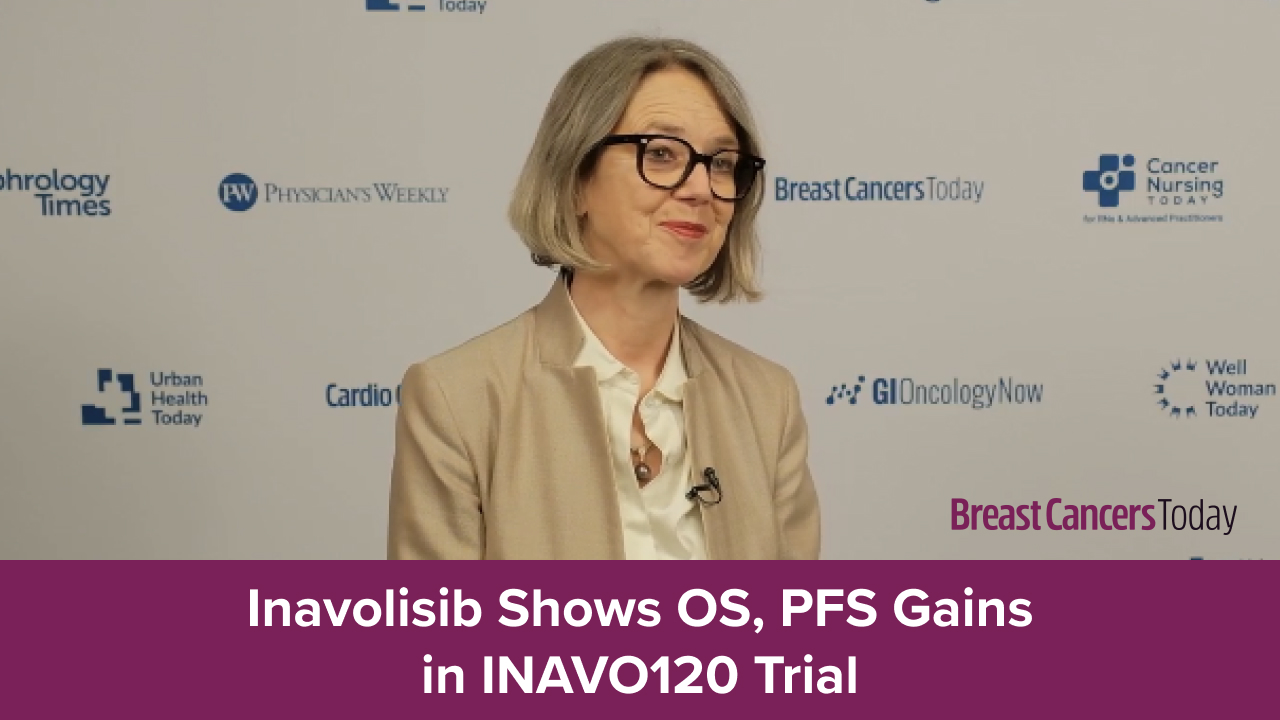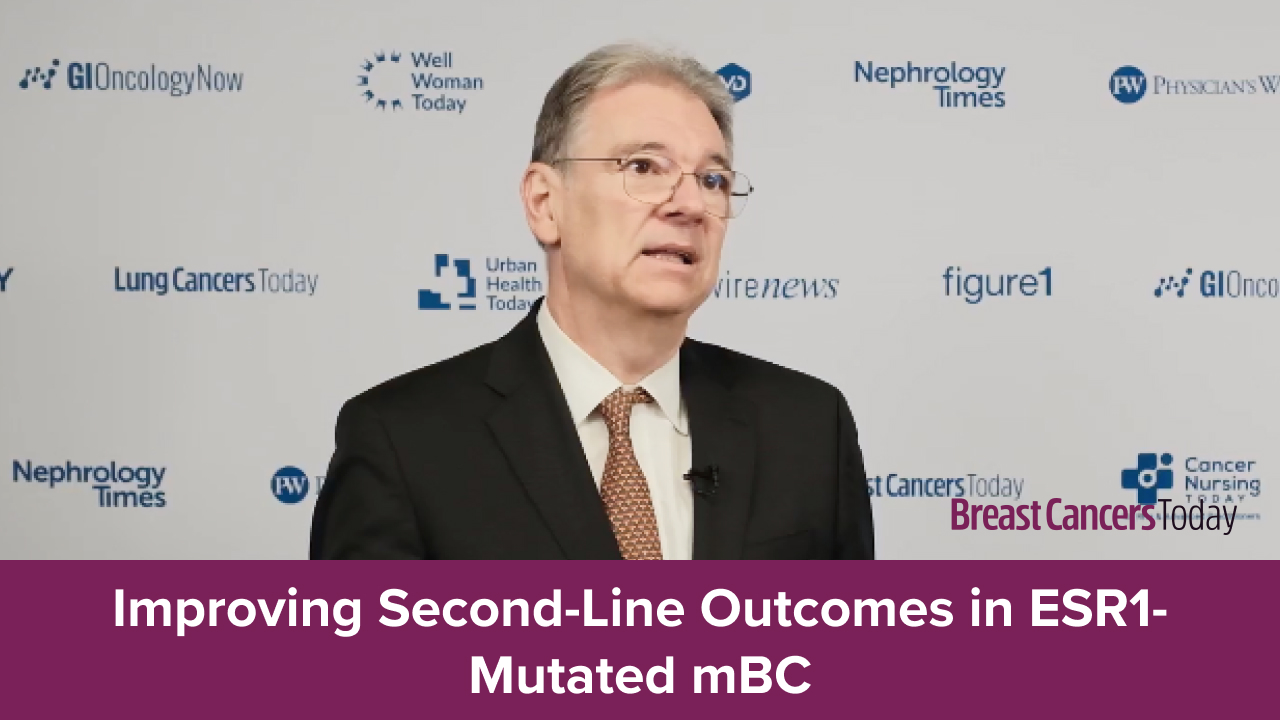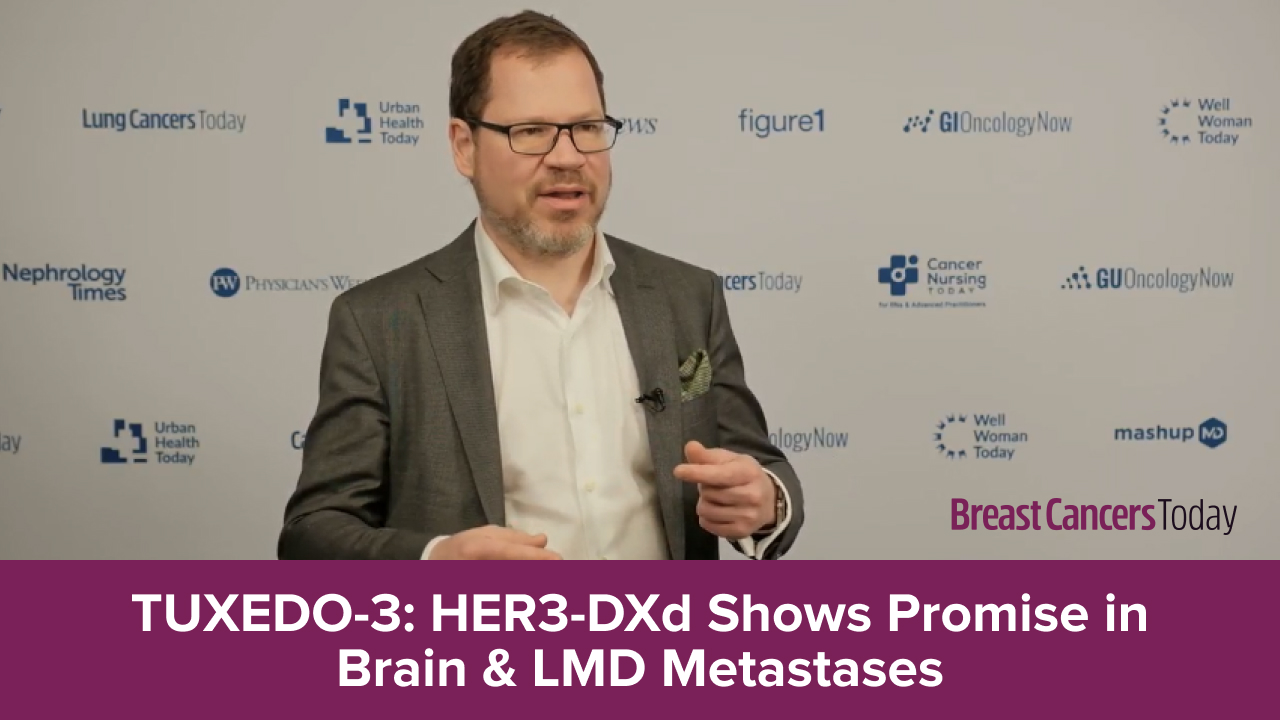
Conference Coverage
Advertisement
Top research highlights from ESMO Breast Cancer 2025 showcase advances in treatment and care for patients with breast cancer.
Dr. David Waterhouse shares how clinical trials can be decentralized to better serve patients in community settings.
OncoPRO is advancing ePRO use in oncology through integration tips, EOM alignment, and improved patient outcomes.
ASCO 2025 study reveals gaps in fertility counseling and awareness among patients with cancer who are of reproductive age.
New drugs like vepdegestrant and oral SERDs may reshape HR+ breast cancer treatment with novel mechanisms and CDK4/6 combos.
Dr. David Waterhouse discusses geographic barriers to TNBC trials for Black women and the case for decentralized research.
DESTINY-Breast09 shows promising PFS with T-DXd + pertuzumab vs THP in HER2+ MBC, but safety and sequencing raise questions.
TVEC plus chemo shows promise in early TNBC, boosting immune response and survival with favorable safety profile.
Dr. Patt discusses how AI is transforming oncology care, and how to implement it responsibly and effectively.
Dr. Sammons on RLY-2608 plus fulvestrant in HR+/HER2– mBC with PIK3CA mutations: safety, efficacy, and trial updates.
There are both positives and negatives associated with either testing method.
The researchers focused on white matter microstructures in the relationship between REM-OSA and cognition decline.
Dr. Shatsky weighs DESTINY-Breast09 findings and highlights the need to balance efficacy with long-term quality of life.
Emi-Le ADC shows promising activity in B7-H4–positive TNBC and endometrial cancer with a novel auristatin payload.
INAVO120 shows OS benefit with inavolisib in PIK3CA-mutated HR+/HER2– aBC, raising new considerations for first-line care.
ADELA trial explores elacestrant + everolimus for ESR1-mutated breast cancer post-CDK4/6, aiming to boost 2L outcomes.
New ASCENT-04 data could shift first-line care in PD-L1+ TNBC. Dr. Rebecca Shatsky shares real-world insights from ASCO 2025.
Most patients switching from modafinils to solriamfetol preferred it, citing better effects; others reverted due to side effe
HER3-DXd shows promise for CNS metastases in breast and lung cancer in the TUXEDO-3 trial, including patients with LMD.
The drug was well-tolerated and adverse reactions were minimal to moderate in severity.
Advertisement






















 © 2025 Mashup Media, LLC, a Formedics Property. All Rights Reserved.
© 2025 Mashup Media, LLC, a Formedics Property. All Rights Reserved.